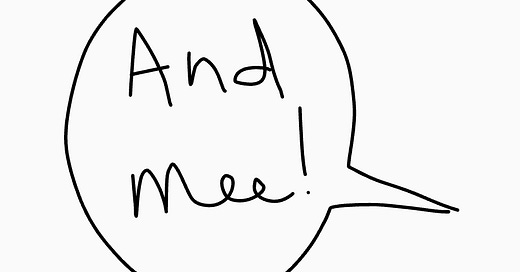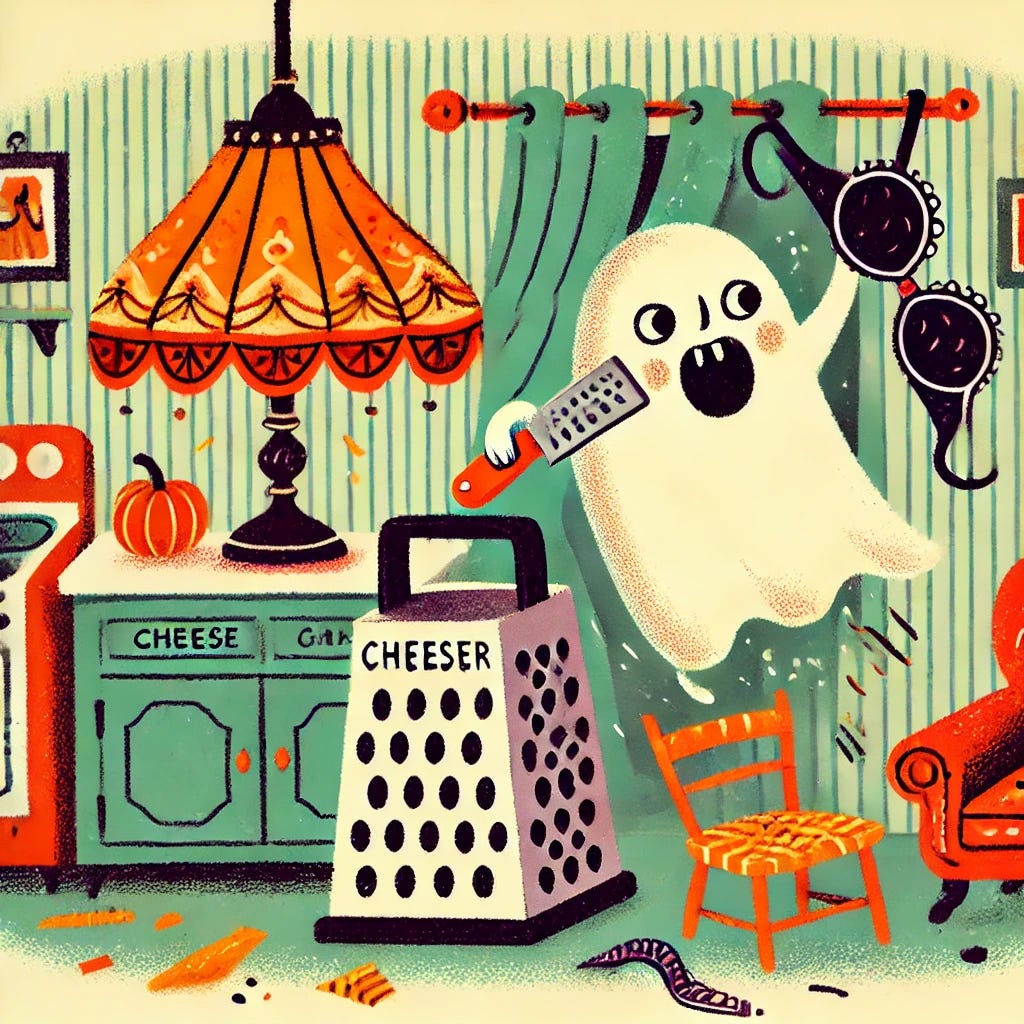Ripple Effects: ADHD, Sobriety, and the Chaos that Connects
The not-so-hidden ties between ADHD and addiction, and the relief of self-understanding.
There’s a moment occasionally in AA meetings when it feels like the whole thing might unspool. The structure suddenly unable to hold the chaos of the humanity it's attempting to support.
Last week, at my home group, the main sharer mentioned their ADHD diagnosis — offhand, almost apologetic, the way you might admit to forgetting to put the bins out — and thus began a strange and lovely chaos.
Five women, maybe six, spoke up, almost in turn. Each shared some version of, “Oh, that’s me too!” or “I didn’t realise until I got sober.”
Our stories spilled out in overlapping fragments, piecing together how ADHD shaped our lives long before it had a name. Losing things, impulsive decisions, no filter, rejection sensitivity... and through it all, drinking to numb the relentlessness.
It was like someone dropped a pebble into a still lake, and the ripples knocked all the ducks off course. I’ve never been in a meeting so utterly derailed yet so strangely purposeful—at least, not one derailed by anything other than the occasional drunk newcomer. That kind of chaos happens less often than you might think. But this was different.
At one point, a woman asked outright, “Is there a relationship between ADHD and heavy drinking?” Those of us who had learned about it nodded conspicuously.
YES.
Another woman, breaking the cardinal rule of AA, responded directly. “There is,” she said, before recommending Scattered Minds and In the Realm of Hungry Ghosts — books that delve into the connection.
I kept waiting for someone to get the meeting back onto its usual track, but the ADHD train just kept running.
ADHD was easier to recognise in myself than Autism. It didn't blindside me quite the same way. Perhaps because my understanding of ADHD was better and so it seemed more obvious, I’m not sure. But for whatever reason, I don't talk about the ADHD part so much.
Before I was diagnosed with ADHD, I genuinely feared I had early-onset dementia. Having ADHD is like living with a poltergeist who loves to hide things. From the cheesegrater I was just using to the bra I was just about to put on.
The worst parts of my day—losing paperwork, forgetting tasks, running back for things I left behind, being late, or starting something without the right tools—are all ADHD. It’s exhausting. And infuriating. I used to drink at the end of most days, mainly just to give myself a break from the self-created chaos and stress feelings triggered by Trying to Do Anything with ADHD.
But ADHD isn’t just something you have. It’s a lens through which you see your entire life. Before I knew what the lens was, I was full of shame and self-loathing. The impulsivity, forgetfulness, and disorganization made life feel unbearable when I blamed myself and lacked self-compassion as well.
When I first quit drinking, a friend said to me, “This is going to be a real leveling up for you.” And she was right.
But it was sort of a leveling down, as well. Because alcohol had been such a thoroughly integrated and effective coping strategy in my life. No matter how many mistakes I'd made out in the world, trying to Do Something, I could just pour a drink and let it go. Relax and move on. Alcohol was my escape hatch from beating myself up, maybe even allowing me to laugh about All the Mistakes. Sometimes, I miss that simplicity.
I can move on now, without alcohol, but it isn’t as streamlined. This is the horror/wonder of booze - the speed with which it soothes/comforts. Nowadays I have to actually talk with someone who understands. My mum or friends with similar traits. We itemise the string of ridiculous and relentless logistical errors, ranting/offloading until we can join in seeing the funny side.
Sobriety doesn’t change who you are, it just removes some of your disguises and your very favourite tool. And that can be uncomfortable. And challenging. No way around it.
If I had discovered neurodiversity first, would I even have got sober? I’m not sure.
At the same time, not drinking reigns in a whole dimension of ADHD and beer-related chaos, and that helps A LOT.
As the meeting ended, we stacked chairs and broke off into groups, laughing and talking about what had been shared. I walked away feeling lucky to have this community of women from different walks of life to talk honestly about how weird it is to be alive.
Recovery is a strange mix of the tragic, the mundane, the holy, and the profound. Meetings create space for these fleeting moments of clarity and connection, where someone speaks their truth, and others see their own reflected back.
Every now and then there are these charged moments of hilarity or clarity or camaraderie. A wave of people, at different points of awareness about the same thing. The more experienced holding space for the entirely bewildered in a way that’s just glorious.
It's happened to me so many times now - but never about neurodiversity. When someone speaks their truth, and a handful of strangers recognise themselves in it - each understanding themselves and the world a little better as a result.
List of good things
Fiction - James by Percival Everett: A retelling of Huck Finn that feels like it’s trying to punch the world in the face while making you laugh and cry at the same time. A must-read.
Non-fiction - Never Had a Dad by Georgie Codd: An exploration of what family actually means, delivered with enough humor to make you forget you’re learning something deep.
Music Video - Kendrick Lamar’s Squabble Up: It’s not just a song—it’s a guide on how to hold your own, how to be confident when you’re just trying to stay afloat. You might also pick up some new reading material.
Chelsey Flood is the author of award-winning novels Infinite Sky and Nightwanderers, and a senior lecturer in creative writing at UWE. She is currently working on a literary memoir about getting sober and then finding out she’s autistic and her first domestic thriller.






I love this! And it's great to hear from you! That sounds like an awesome meeting. I'm glad nobody tried to get it back on track :) It is so good to be reminded of how good meetings can be. "Alcohol was my escape hatch from beating myself up, maybe even allowing me to laugh about All the Mistakes. Sometimes, I miss that simplicity." Yes! You articulate this so well - as a tool, it worked quite well. But I am so grateful for having the ability now to talk through things the hard way, which I avoided for so many years.
I was finally diagnosed with ADHD about five years ago. It answered a lot of questions I had, and you probably picked up on back at school.
If you've ever seen the movie Limitless with Bradley Cooper, the only way to describe it if you haven't got this, is the moment when he takes the pill and the character knows everything about everything, but once the effects wear off, he goes back to being fairly meek and mild.
Yep, for the sake of clarity, Chel and me were in the same class at school!